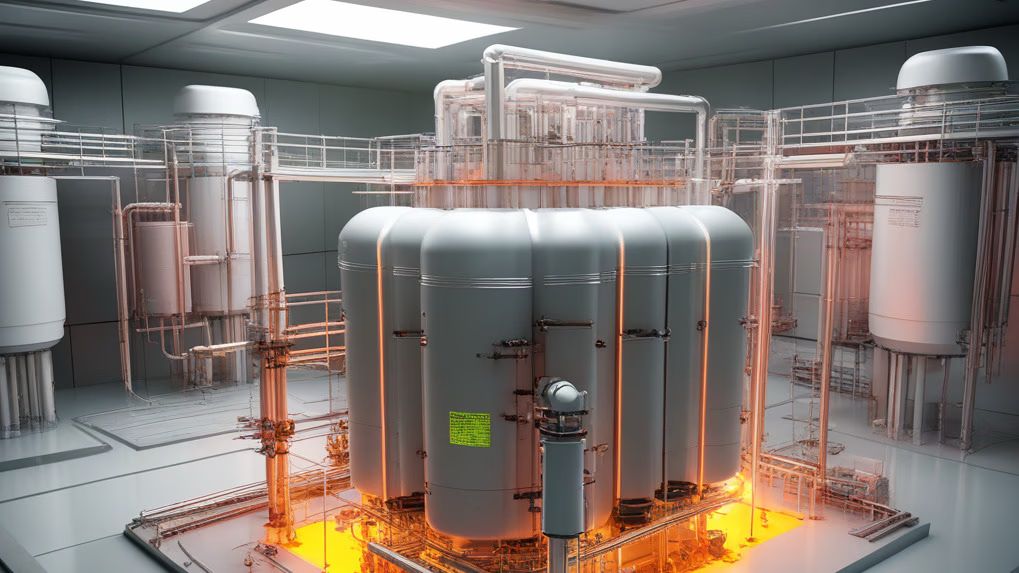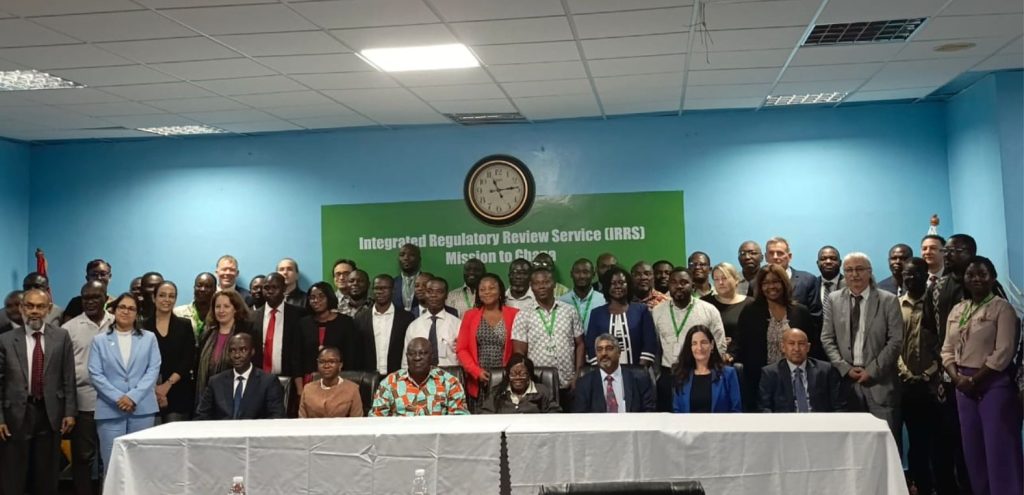Albert Oppong-Ansah
Accra, Nov. 25, GNA – Ghana is considering two nuclear technologies for its nuclear power programme, Mr Herbert Krapa, the Minister of Energy announced today.
The country, he said was “carefully” considering large and small modular reactors as the ideal technologies.
Mr Krapa, who made the announcement in a speech delivered on his behalf at the opening of the Integrated Regulatory Review meeting in Accra, said the vendor countries or country would be communicated next month.
He explained that each of the two nuclear technology offered unique advantages that aligned with the country’s long-term vision for energy security, economic development, and environmental sustainability.
The meeting, which is at the invitation of Ghana, is being hosted by the Nuclear Regulatory Authority (NRA) for International Atomic Energy Agency’s Senior regulatory experts to review Ghana’s regulatory infrastructure.
The experts would at the end of their 10-day review meeting make the necessary suggestions for improvement of gaps identified.
Mr Krapa stated that Ghana’s Nuclear Power Programme was advancing with great determination as the country aimed to include nuclear power in its electricity generation mix by the mid-2030s.
“This initiative underscores our commitment to transitioning toward a cleaner, more sustainable energy future while meeting growing energy demands. Nuclear power will play a pivotal role in our energy transition, complementing renewable energy sources and helping us achieve our commitments to clean energy production under the Paris Agreement”, he said.

Mr Patrick Nomo, Chief Director Ministry of Environment Science, Technology and Innovation, said the government had developed some of the regulations and that the input at the review meeting would help strengthen and make the necessary corrections before they were passed by Parliament.
He noted that the government was exploring the options of making the NRA autonomous.
Dr. Nii Kwashie Allotey, the Director-General of the Nuclear Regulatory Authority, told the GNA that the country had the adequate regulations for the two technology options.
Ghana’s financial arrangement for the large reactor would be “Build Operate and Transfer”, with opportunities for local equity participation whereas that of the small modular reactor would be financed through crowd funding.

The inclusion of nuclear energy is expected to help Ghana achieve the target by reducing the nation’s reliance on fossil fuels, mitigating climate change, and ensuring energy security for future generations.
Ghana aims to integrate one gigawatt of nuclear power into its electricity mix by 2034, which is in line with its energy policies.
Already, Ghana is at the mid-end of second phase of the nuclear programme.
It has settled on a preferred site that can accommodate up to five reactors and backup for its first nuclear power plant.
The plant will be the baseload power for industrialisation, and address concerns of limited hydro sources, postulated decline of gas, cause tariff reduction for industries, desalination, and create employment.
Sixteen countries and companies initially responded to the government’s call for vendors, but the Energy Ministry, guided by a technical team, shortlisted five.
Ghana is one of several African nations exploring nuclear energy to address power supply challenges.
The concept of building a nuclear power plant in Ghana originated in the 1960s but was derailed by a coup.
It was revived in 2006 with backing from the International Atomic Energy Agency following a major power crisis in the country.
GNA